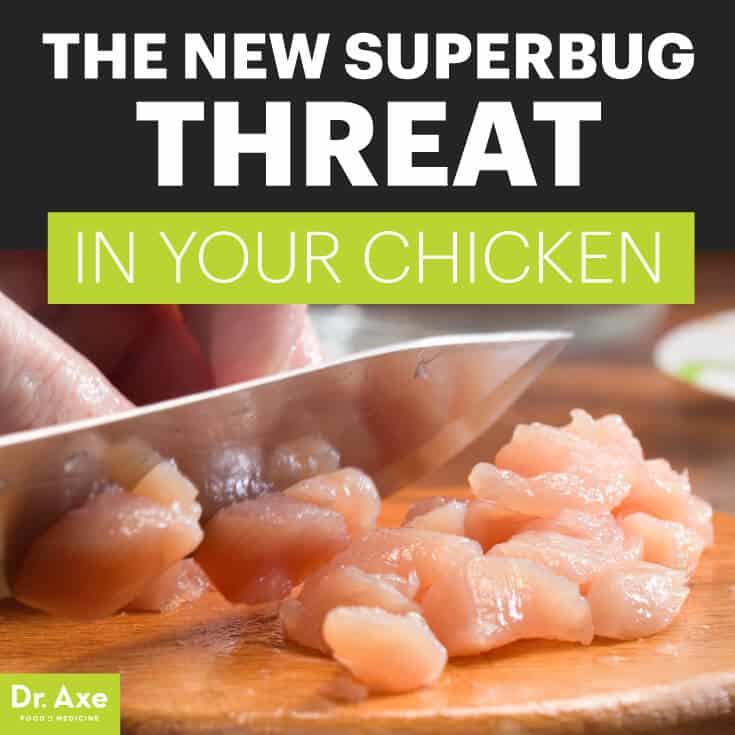This Dr. Axe content is medically reviewed or fact checked to ensure factually accurate information.
With strict editorial sourcing guidelines, we only link to academic research institutions, reputable media sites and, when research is available, medically peer-reviewed studies. Note that the numbers in parentheses (1, 2, etc.) are clickable links to these studies.
The information in our articles is NOT intended to replace a one-on-one relationship with a qualified health care professional and is not intended as medical advice.
This article is based on scientific evidence, written by experts and fact checked by our trained editorial staff. Note that the numbers in parentheses (1, 2, etc.) are clickable links to medically peer-reviewed studies.
Our team includes licensed nutritionists and dietitians, certified health education specialists, as well as certified strength and conditioning specialists, personal trainers and corrective exercise specialists. Our team aims to be not only thorough with its research, but also objective and unbiased.
The information in our articles is NOT intended to replace a one-on-one relationship with a qualified health care professional and is not intended as medical advice.
Superbug in Chicken: Scientists Discover New MRSA Strain
September 23, 2016

A potentially lethal superbug in chicken shouldn’t be on your mind as you whip up evening dinner, but maybe it should be. A study published in Clinical Infection Diseases finds people are now contracting MRSA from handling and eating chicken at home. Traditionally, MRSA transmission via chicken is more likely to occur in veterinarians or workers on huge industrial farms. Now, it seems, we’re dealing with a new MRSA strain with the ability to lurk on raw meat that makes it way into your home. (1)
For obvious reasons, that’s a problem. See, for many families, chicken is the go-to protein, especially at dinner time. It’s a great way to avoid protein deficiency. Plus, it’s budget-friendly, easy to cook and enjoyed by even the pickiest eaters. It’s no wonder then, that in 2015, the average American ate about 56 pounds of the bird. (2)
But MRSA’s putting a damper on that. MRSA, or methicillin-resistant Staphylococcus aureus, is an infection caused by a form of staph bacteria. (3) If left untreated, MRSA can cause serious infections throughout the body and, in some cases, even death. MRSA infections are most common among people who work in healthcare facilities like hospitals and people who directly work with livestock, like farmers and veterinarians.
It’s also further evidence of an antibiotic resistance problem. The more we feed our farm animals low levels of antibiotics to speed their growth and ward off disease due to poor living conditions, we’re increasing the risk of the creation of hard-to-kill superbugs.
Currently, there are about 80,000 MRSA infections and 11,000 MRSA-related deaths reported a year in the U.S. (4) It’s become such a crisis that in 2014, President Barack Obama issued an executive order establishing a new inter-agency task force charged with developing a national strategy to combat antibiotic-resistant bacteria. (5)
The New Superbug in Chicken Threat
In the latest study, an international team of researchers, including a team from George Washington University, found that people from urban areas with zero exposure to live animals are becoming infected from eating or handling MRSA-infected chicken.
Looking at a Danish population, the research team found that Danes living in cities had been infected with a new strain of MRSA. The superbug in chicken is associated with livestock and poultry, but hadn’t been identified before. None of those infected had worked on farms or been exposed to food animals, suggesting that this strain is more easily transmitted from food to people than other strains.
Because food inspection is often focused on detecting pathogens like Salmonella, MRSA often goes undetected. And though the study was done in Denmark, superbugs are found throughout the world. As the study’s lead author said, “Superbugs don’t respect political or geographical boundaries.” (6)
MRSA in Chicken: A Background
This isn’t the first time that MRSA has been detected in our meat supply. Back in 2011, a study of 289 raw meat samples — 156 beef, 76 chicken and 57 turkey — from Detroit found that three of the chickens tested positive for MRSA. (7)
Another study done in 2013 confirmed that MRSA can be transferred from livestock to humans. (8) And dangerous pork has long been a carrier of MRSA. In 2011, MRSA was detected in 8 percent of pork samples sold in Fargo, North Dakota, grocery stores. Another study found MRSA in 7 percent of pork examined, with no difference between conventionally grown pork and those raised without antibiotics.(9, 10)
Finally, MRSA has been found in manure spread on farms, which puts members of the community, whether they work on the farm or not, at risk of infection. (11)
But it’s not all doom and gloom. Thought the threat of MRSA might be growing, there are a few steps you can take to minimize exposure.
Your Superbug-in-Chicken, MRSA-Fighting Action Plan
1. Use gloves when handling raw meat
Reduce your chances of contracting MRSA by wearing gloves any time you’re handling raw meat. This is extra important if you’ve got a cut or scrape on your hand, as these serve as portals for the bacterial disease.
Be sure to wash your hands and all contaminated surfaces thoroughly with soap and water afterward, too. (Don’t go into antibacterial overkill mode, though. Regular soap and water works just fine. The Food and Drug Administration announced a triclosan ban to go into effect in September 2017 because the toxic antibacterial chemical actually contributes to antibiotic resistance. Ironic, right?)
2. Eat real food
Sticking to a real food diet strengthens your immune system, helping your body naturally resist infections. Raw fruits, veggies and nutrient-dense foods are great choices. Don’t be afraid of healthy fats like coconut oil or avocados — these are crucial for keeping your body in tip-top shape. And fermented foods like sauerkraut and kimchi will help build up good bacteria in the gut, so if you are exposed to icky bacteria, you’re in better shape to fight it off.
3. Avoid added sugar
Bacteria feed off sugar. Eliminating processed sugar from your diet will keep you healthier overall but also cut off the feeding source for MRSA and other staph infections.
4. Keep your distance from poultry trucks
Because MRSA has been found to fly off those chicken-filled poultry trucks you see on the highway, keep your distance from them when on the road. If you have the air conditioning on, turn it to recirculate so you avoid bringing outdoor air inside — or just hang back and create some distance. (12)
5. Avoid drugged meat
Stopping superbugs means we all have to source the highest quality meat. (And skip out on meat, eggs and dairy raised with antibiotics.) This could mean you’ll have to eat less meat, and that’s OK. Just eat higher-quality when you do and learn how to make the most of it, like using all parts by using bone broth recipes. USDA organic forbids the use of antibiotics. For the healthiest meat, look for animals raised organically and out on pasture.
6. Hit the magic number
When cooking chicken, be sure to hit 165 degree Fahrenheit to kill pathogens. (13)
7. Get someone else to scratch your nose
Because of the superbug in chicken debacle, you really need to keep your hands away from your face, particularly your nose, when you’re dealing with raw chicken. Same is true when you’re washing contaminated dishes, surfaces and utensils. MRSA is really good at colonizing in your nasal passages. (14)
Final Thoughts
Antibiotic resistant superbugs are becoming a crisis around the world. A big part of that is related to the way we raise food. Giving animals low-dose antibiotics to make them grow unnaturally fast and to keep them alive in crammed, diseased conditions fosters the creation and breeding of dangerous germs like MRSA.
We all need to pledge to choose antibiotic-free meat (if you eat meat) to better protect from this threat on a broad scale. At home, safe handling of meat and cooking meat thoroughly will protect your family from superbug threats.



